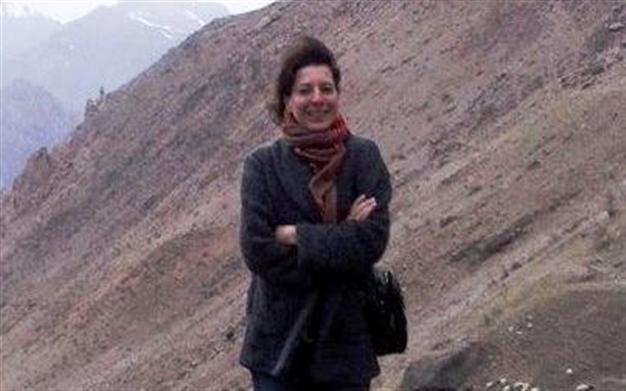Turkish minister defends ‘judicial process’ after detention of Dutch journalist
Sevil Erkuş ANKARA

Diyarbakır-based Dutch journalist Frederike Geerdink was briefly detained for testimony Jan. 6.
Police appealed to Dutch journalist Frederike Geerdink for her testimony as part of an ongoing investigation on allegations of making propaganda for a terrorist organization, Turkish Justice Minister Bekir Bozdağ has said, noting that the judicial process was in line with the legal procedure.
“The incident caused uproar because of Turkey’s unfair record,” Bozdağ said in his address at the 7th Annual Ambassadors’ Conference on Jan. 7, asking whether European countries would not demand the testimony of a Turk “if they made propaganda of a terrorist organization.”
“Turkey is facing unfair criticism over the detained journalist,” he added.
Dutch minister questions Turkish colleagueWhile visiting Dutch Foreign Minister Bert Koenders raised concerns over the detention of Frederike Geerdink, a Diyarbakır-based Dutch journalist, during his meetings with his Turkish colleagues, including Foreign Minister Mevlüt Çavuşoğlu on Jan. 6, the Turkish side defended the impartiality of the ongoing judicial process; diplomatic sources told the Hürriyet Daily News.
Koenders said he was “shocked” by the detention of the reporter on the official Twitter account of Dutch Ministry of Foreign Affairs.
Another Dutch journalist’s testimony takenMeanwhile, shortly after Geerdink’s arrest on Jan. 6, another Dutch national Mehmet Ülger was summoned by Turkish police during check-in at Istanbul Atatürk Airport on Jan. 7. He was taken to court for testimony and released on the same day.
Ülger is reportedly subject to investigation because he took a photograph during a court hearing.
Justice Minister Bozdağ said there has been “no single case of detention based on reasonable doubt” since the controversial new legislation was recently passed. Accusing the media of linking all procedural acts, such as arrest and detention cases, to the “reasonable doubt” changes, he stressed that reasonable doubt was only possible for search orders to be issued.
“These are lies and distortions as part of perception operations,” he said.
The most recent Committee to Protect Journalists (CPJ) report on the subject stated that seven Turkish journalists are currently held in prison but they are not imprisoned over their journalistic activities, Bozdağ also added.
